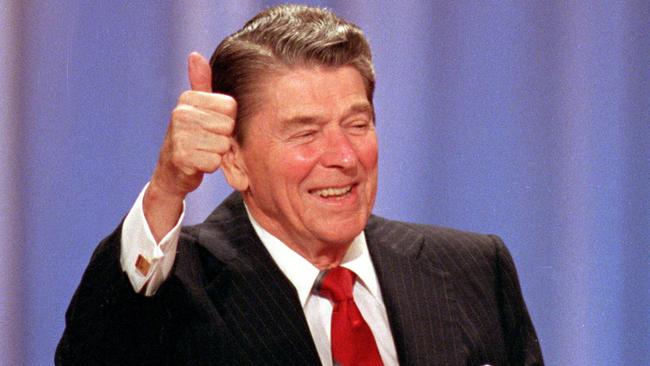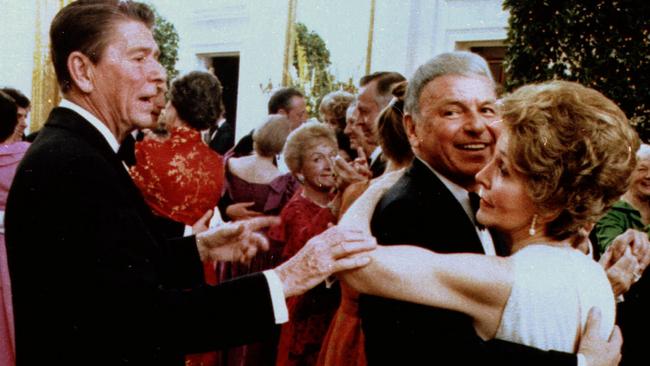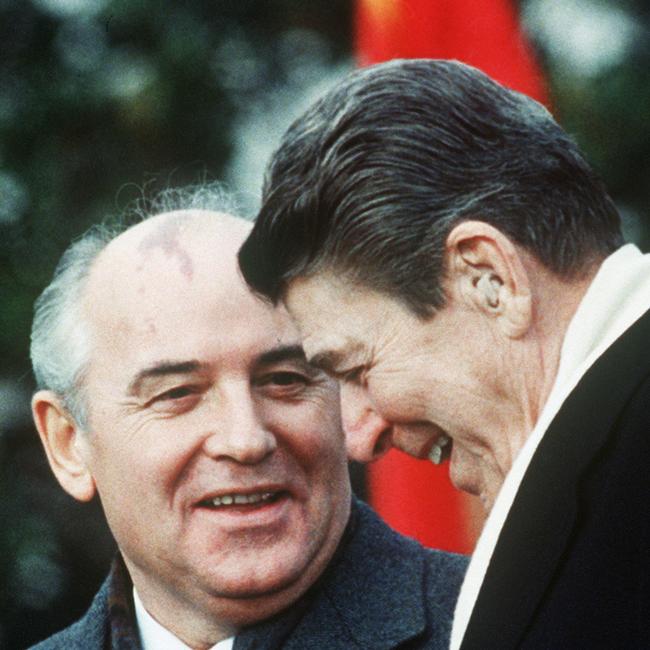Americans worried about Ronald Reagan’s age, too
Like President Joe Biden, Ronald Reagan seemed doddering in his first debate for re-election, but he went on to win a second term and left office with notable achievements and broad public support.

Concerns about the president’s cognitive abilities and attention span were rising. The “age issue,” which had been lurking in the background, was raising new alarms. One insider suggested in a private memo that aides consider invoking the 25th Amendment, which allows for removing an incapacitated president.
The time? March 1987. Ronald Reagan was 76 and in his second term as president. The Iran-Contra scandal, in which his administration had secretly made indirect arms shipments to Iran in return for help freeing American hostages from Lebanon, had brought Reagan to new lows in popularity and esteem. It also raised questions about whether the president, then the oldest ever to serve, actually knew what was happening around him.
A new team of White House aides, led by former Sen. Howard Baker, swooped in to clean up the mess. They were alarmed about what they heard about a distracted and detached president.
Then something unusual happened. Baker and his aides had their first set of meetings with Reagan and found him sharper and more engaged than they were led to believe. Reagan’s presidency began recovering.
Eventually he finished a second term marked by some significant accomplishments – among them a historic tax-reform deal, a landmark arms-control agreement with the Soviet Union and a sweeping immigration reform plan. He left office with a robust 63 per cent job approval rating in Gallup polling.

The Reagan experience has new relevance today, given the nation’s current fixation on the question of whether President Joe Biden, at 81, is too old for a second term in office (and given that Donald Trump at age 78 also is older than Reagan was at the start of his second term). The parallels with Biden aren’t perfect – Biden is eight years older as he seeks re-election than Reagan was when re-elected in 1984 – but there are similarities worth exploring today.
As a young White House reporter, I covered the end of Reagan’s second term. In fact, I was one of a handful of reporters in the Oval Office for an exit interview in January 1989, his final week in office. Yes, he meandered a bit, but I still remember the forceful case he made for the benefits of immigration and the value of promoting democracy abroad. I also got to know the people who worked closely with Reagan daily.
They described, at the time and in subsequent conversations and writings, a president for whom ageing certainly was an issue. They acknowledged limiting his schedule to conserve his energy. They noted that the first lady – then as now – was a key player in protecting an older president’s time and energy.
Tom Griscom, who served as White House communications director, told me this week that Nancy Reagan once questioned the amount of paperwork sent home with the president, asking: “Do you need to send all this paper up every night? Because Ronnie reads it all.”

But did these staffers believe Reagan’s age hindered his performance as president? Did they find him less capable of making big decisions at pivotal moments? No, they insist.
The “age issue” exploded for President Reagan in precisely the same way as it did for President Biden, with a bad performance in a campaign debate in his quest for re-election. In an October 1984 debate against Democratic presidential nominee Walter Mondale, Reagan, a former actor usually adept at reeling off his lines, delivered a rambling, stumbling performance.
Two days later, this newspaper (WSJ) ran on its front page a story by my colleagues Rich Jaroslovsky and Jim Perry that pulled the age issue from the shadows. The headline: “New Question in Race: Is Oldest US President Now Showing His Age?”
Reagan managed to subdue these concerns weeks later with a better performance in the next debate, which he punctuated with a joke: “I will not make age an issue of this campaign. I am not going to exploit, for political purposes, my opponent’s youth and inexperience.”

He won re-election in a landslide. By late 1986 he was dealing with the mess of the Iran-Contra affair, which involved using the proceeds of the secret arms sales to Iran to aid anti-communist Contra rebels in Nicaragua. Both actions were against stated American policy, and the aid to the Contras was almost certainly illegal. Perhaps worse, it often appeared, in public and in private, that Reagan didn’t grasp the gravity of the events.
Washington was consumed by the scandal. First lady Nancy Reagan moved quickly to clean out the White House staff. Baker, a highly respected veteran of the Senate, became the White House chief of staff. The night before he started, he received that memo from a high-ranking confidant about invoking the 25th Amendment to make a change at the top.
Mindful of this warning, Baker and his small team began working with Reagan the next day. “We all had lunch with him and had our sessions with him, and it never came up again,”
A.B. Culvahouse, who served as White House counsel from 1987 to 1989, told me this week. “The president was engaged. His recollection of Iran-Contra had been confused a little bit because others had imposed their memories on him. His was more accurate.”

In the aggregate, Reagan’s second term was a mixed bag. He underwent surgery to remove a cancerous growth in 1985, which exacerbated public concerns about his health. He alarmed his aides by casually proposing to Soviet leader Mikhail Gorbachev the complete elimination of nuclear weapons. Later, his nomination of Robert Bork to become a Supreme Court justice was a disaster, though that was probably more because of Reagan’s stubbornness in sticking with a controversial jurist than any detachment from or confusion about the process.
But Reagan also had four generally successful summit meetings with Gorbachev during the second term and struck deals on intermediate-range nuclear missiles in Europe and the Soviet withdrawal from Afghanistan. The economy soared. He held 20 solo news conferences, 14 of them on national TV in prime time.
In contrast, President Biden has held 15 solo news conferences, only one in prime time. “The president was at the top of his game,” Culvahouse recalls.
Reagan left office on a high. In a show of public support, in 1988 the country elected his vice president, George H.W. Bush, to take his place. After a dramatic fall from a horse in 1989 that required brain surgery, Reagan’s subsequent decline was swift. “I saw him two years later, and he was a different man,” Culvahouse says.

In 1994, Reagan announced in a letter to the nation that he was suffering from Alzheimer’s disease. Were there signs of dementia in that second term? It is a question without a definitive answer, but those closest to him, including Baker, insist not.
Edmund Morris, Reagan’s official biographer, wrote in 2011: “I never saw any signs of dementia during the years that I observed Reagan in action, from May 1985 through his departure from the White House in January 1989.”
Regardless of whether age hampered Reagan’s judgment, a crucial takeaway from his tenure is the importance of those around the president. Reagan was always a big-picture guy, never a detail man, and probably became more so over time, but he surrounded himself with top talent to make up the difference: Howard Baker, Treasury Secretary James Baker, Secretary of State George Shultz, national security adviser Colin Powell.
A presidency is a team, not a person.
Another lesson for the current debate over President Biden’s age is that the issue can be managed, but it never goes away. Ageing isn’t a reversible process, so an extra layer of scrutiny and doubt is inevitable.
It is now the job of the President – and then of voters if he stays in the race – to decide whether a re-elected Biden could perform as well as a re-elected Reagan did.
– Dow Jones Newswires





To join the conversation, please log in. Don't have an account? Register
Join the conversation, you are commenting as Logout